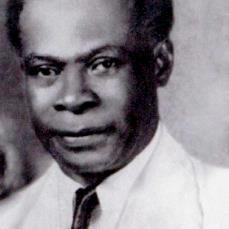The Suppression of Leonard Howell in Late Colonial Jamaica, 1932-1954
by D.A. Dunkley
Abstract: This article is about Leonard Percival Howell, the man who is widely regarded as the founder of the Rastafari movement, which started in Jamaica in 1932. The article focuses on the attempts to suppress Howell during the foundational phase of the Rastafari movement from 1932 to 1954. This was the period in which Howell began preaching the divinity of Haile Selassie I, who was crowned the emperor of Ethiopia in 1930. In 1937, Howell established the friendly organization known as the Ethiopian Salvation Society, and in 1940 started the first Rastafari community in the hills of the parish of St. Catherine, Jamaica. These and his other religio-political activities made Howell the target of one of the longest and most aggressive campaigns to suppress an anticolonial activist during the late colonial period in Jamaica. However, one of the main points of this article is that the attempts to suppress Howell, who was seen by the colonial government as seditious, implicated not just the colonial regime, but also a number of other opponents within the society. This article is an attempt to show that Howell’s suppression was not exclusively a colonial endeavor, but a society-wide campaign to undermine his leadership in order to disband the Rastafari movement. Howell advocated an anticolonialism that was seen as too revolutionary by every participant in the campaign to suppress him and his movement, and particularly aggravating was the notion that a black monarch was the fulfillment of biblical prophecy, and whose ascension signaled the start of black nationalism as a global liberation movement to end white rule over Africans and people of African descent.
Affiliations: D.A. Dunkley, Department of History & Archaeology, University of the West Indies, Mona, Kingston 7, Jamaica. Email:daive.dunkley@uwimona.edu.jm
http://booksandjournals.brillonline.com/content/10.1163/22134360-12340004;jsessionid=1cbwctsih9hhf.x-brill-live-01


